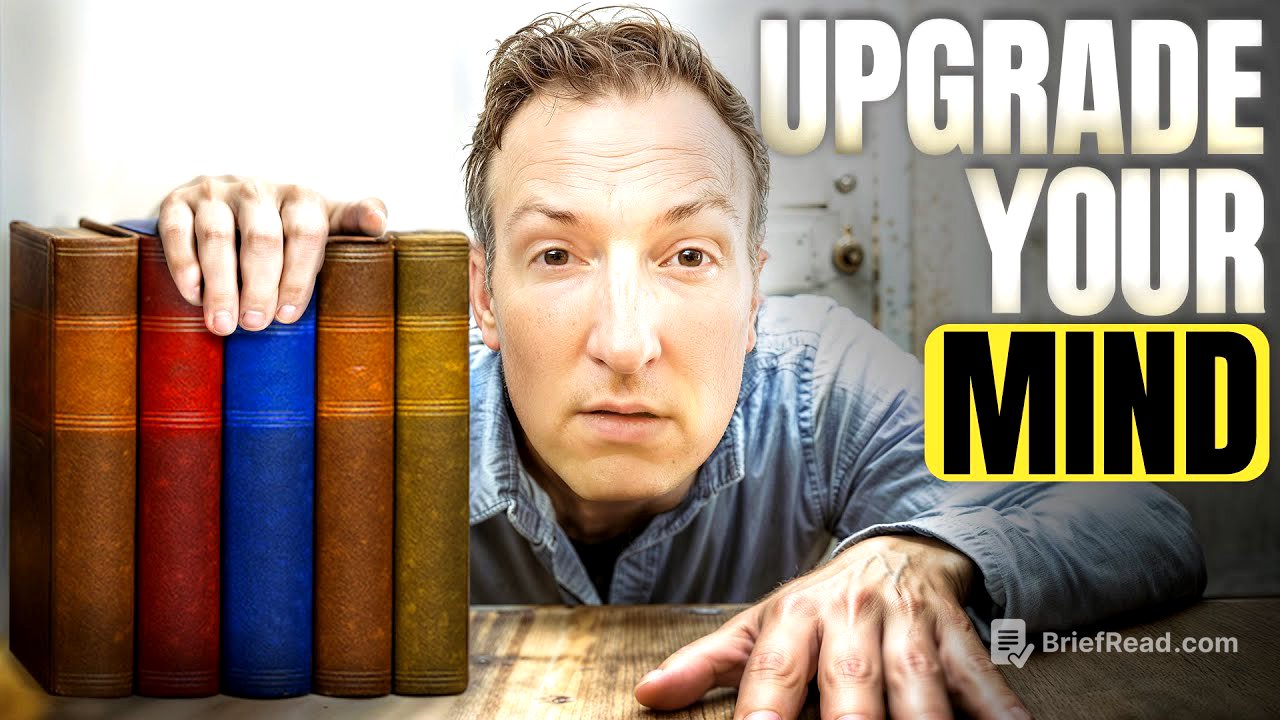TLDR;
This video presents five philosophy books that offer deeper insights than typical self-help books. It challenges viewers to think beyond surface-level solutions and to question the nature of reality, truth, and value. The books encourage critical thinking, comfort with uncertainty, and a broader understanding of our place in the world.
- Simulacra and Simulation by Jean Baudrillard: Explores how curated images and hyperreality dominate modern life.
- Of Grammatology by Jacques Derrida: Examines the situated and ever-emerging nature of truth and meaning.
- The Logic of Scientific Discovery by Karl Popper: Advocates for falsification over confirmation in evaluating beliefs.
- The Ego and Its Own by Max Stirner: Critiques the abstract concepts ("isms") that control our thoughts and lives.
- Natural Goodness by Philippa Foot: Argues for a foundational understanding of life as essential to the concept of value and morality.
Self help is only surface-level [0:29]
The speaker introduces the idea that most self-help books are superficial and lack a real impact. He promises to share five philosophy books that offer deeper insights and can transform one's thinking. These books encourage readers to see beyond the surface and achieve a higher level of awareness.
Book 1 [3:06]
The first book is Simulacra and Simulation by Jean Baudrillard, which argues that modern life is constructed around simulacra, or curated versions of reality. Social media is presented as an example, where curated images of people and places become more real than the actual experiences. The speaker reflects on his past business life, where he felt the need to project a fake image of success. He encourages viewers to consider where they accept and project these simulacra in their own lives and how tapping into reality can transform them.
Book 2 [6:00]
The second book is Of Grammatology by Jacques Derrida, a post-structuralist who believes that truth and meaning are not fixed but situated and always emerging. Although the speaker initially dismissed Derrida's work, he later found value in it. Derrida's perspective highlights that truth is bound up in textual interpretation, and no one has complete authority over it. The speaker notes that while he doesn't fully agree with Derrida, he has learned to understand truth and meaning more fully through his work.
Book 3 [9:00]
The third book is The Logic of Scientific Discovery by Karl Popper, who advocates for falsification over confirmation. Popper believed that we never prove something to be true by confirming it. The speaker illustrates this with a personal anecdote about a lady who wouldn't open a gate for him, leading him to make assumptions based on limited evidence. Popper argues that instead of trying to confirm beliefs, we should try to prove them wrong by seeking exceptions, counterarguments, and alternative explanations.
Book 4 [11:03]
The fourth book is The Ego and Its Own by Max Stirner, which critiques abstract concepts or "isms" that control our lives. Stirner believed that entities like religion, gender, and justice are illusions that manipulate us. The speaker observes that many people strongly adhere to identities and concepts that are vague and ill-defined, replacing real conversation and depth. He encourages viewers to be critical thinkers, ask deeper questions, and communicate more clearly to free themselves from these "isms."
Book 5 [11:03]
The fifth book is Natural Goodness by Philippa Foot, which has significantly impacted the speaker's intellectual work and personal life. Foot addresses the open question argument, which challenges the justification for morality by questioning why something is good. Foot argues that the concept of life is foundational to the concept of value, similar to how 1 + 1 is foundational to math. This perspective broadens the scope of ethics to include how we should behave in the world, considering the impact of our actions on the entire world, not just humans.









